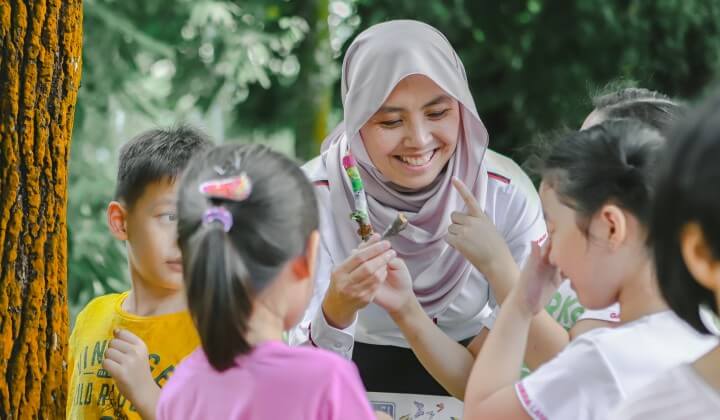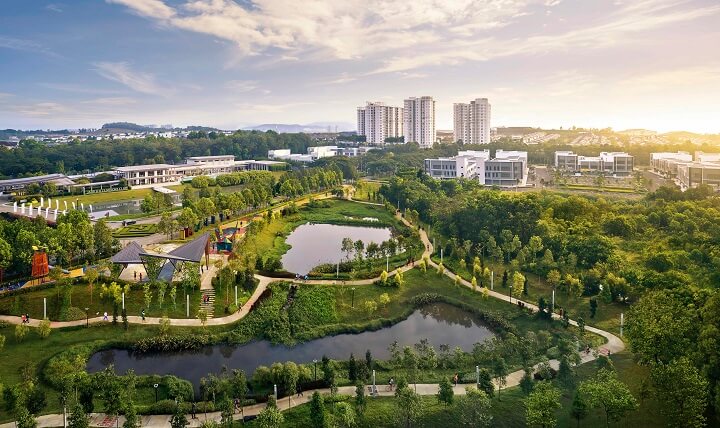
Gamuda Parks insights guide sustainable design and practices across Gamuda Land townships.
More than just parks and recreation
Through these initiatives, Gamuda Land has grown beyond merely developing a space to actively ensure its sustainability and impact on the environment, including flora and fauna.
For one, biodiversity audits are conducted at its landed townships and developments – Gamuda Gardens, Gamuda Cove, Valencia, Jade Hills, Paya Indah Discovery Wetlands, as well as Celadon City in Vietnam – which found 26 flora and 36 fauna species with conservation importance.
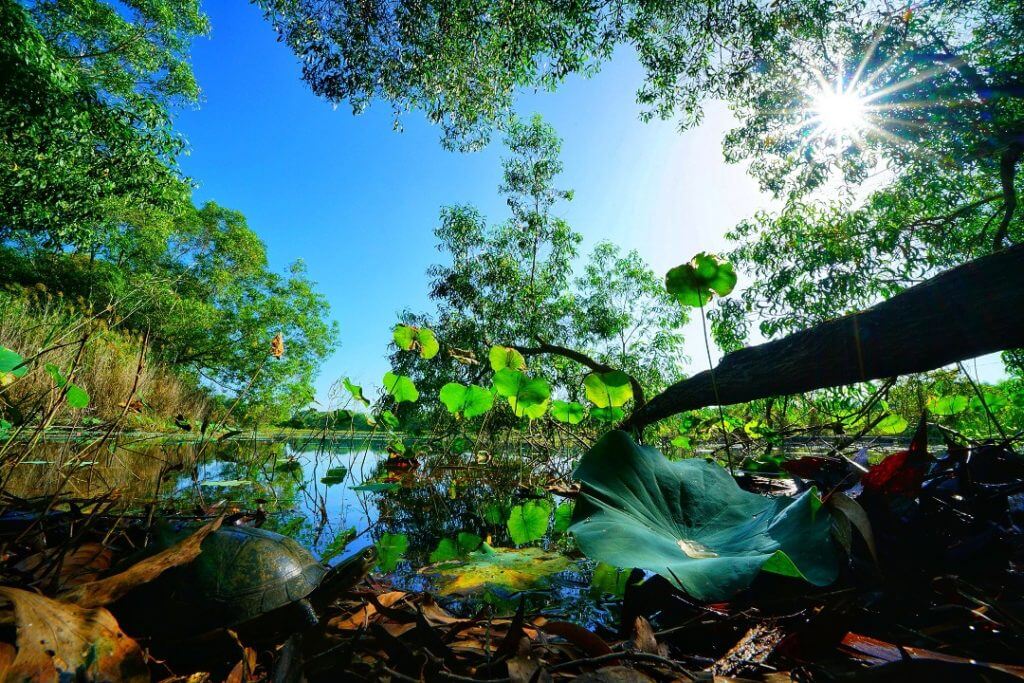
Paya Indah Discovery Wetlands. Gamuda Parks aims to preserve Malaysia’s natural heritage. (Actual photo)
Gamuda Parks has also made it compulsory for every project to introduce at least 5% tree species with conservation value and 70% native species.
So far, up to 281,200 trees have been planted in Gamuda Land’s townships and 6,000 native trees have been planted in their Advanced Tree Planting nursery, including Shorea roxburghii (Meranti temak nipis), which is classified as Near Threatened (NT) in Malaysia.
The trees in Gamuda Gardens are tagged with Augmented Reality (AR) codes and the information is publicly accessible via the Gamuda Parks platform.
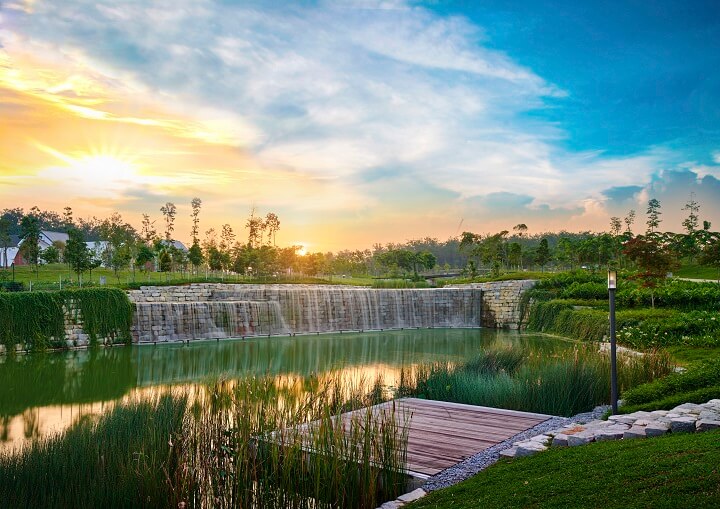
Gamuda Land goes beyond just developing spaces, to actively ensuring sustainability and minimising impact on the environment.
The sustainable living mantra has also permeated food waste management as the company has initiated the Compost-on-Wheels programme involving a composting truck which drives around townships to collect food waste from residents and visitors. It has generated 90kg of compost to date.
With 16,688 tonnes of food waste generated every day in Malaysia according to the Solid Waste and Public Cleansing Management Corporation, Gamuda Land has also launched Plate-to-Plant to turn food waste into plant fertiliser.
Under the initiative, a food waste centre has also been introduced this year to collect up to 100kg of food waste via designated bins strategically placed throughout its townships.
A cleaner, greener future
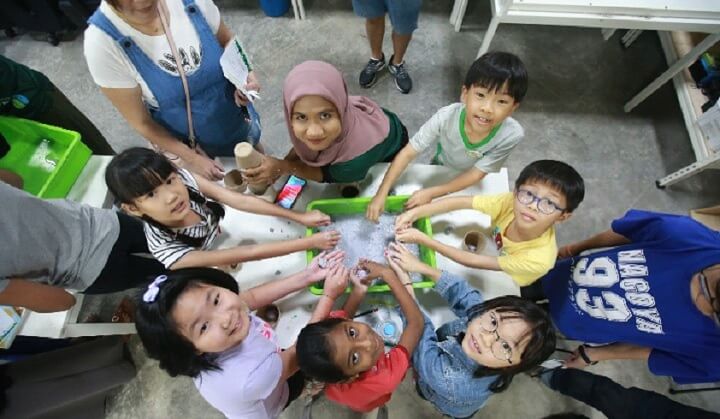
It’s never too early to start learning about sustainability.
The green efforts aren’t just in place only for today, of course, as sustainability exists to preserve the land for future generations.
Gamuda Land plans to create a 90-acre Wetlands Forest Park in its Gamuda Cove township as a conservation and recreational zone to preserve more than 4,300 trees with conservation importance and plant 60% native trees.
It’s an alternative to the ‘Adopt a Forest’ programme in which corporations pay NGOs to plant trees in forests.
They’ve also committed to setting up an arboretum and research centre at Wetlands Forest Park that will offset carbon emissions via tree planting.
The Wetlands Forest Park arboretum brings together Gamuda Land’s town-making principles together in one initiative. By getting the places right, including the park place, wellness place and learning place, the town as a whole works.
Plans are also underway for Gamuda Land’s townships to wholly adopt a circular waste management system with a target of generating 10,000 kg of compost material from food and garden waste.
With the ever-increasing focus on sustainability and its importance in battling climate change, as well as the undeniable health benefits to mankind, a green township is no longer a hazy concept of the future but one that’s needed right now – just ask Gamuda Parks.
